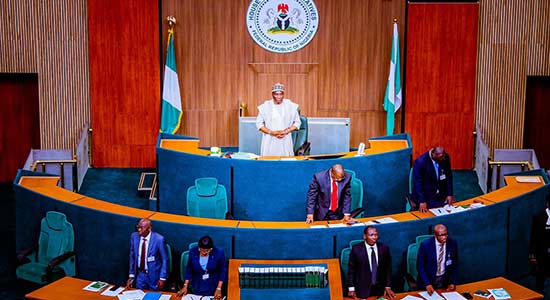“It Limits Choices” – Reps Divided Along Regional Lines as Rotational Presidency Amendment Bill Fails Voice Vote

The House of Representatives has rejected a proposed constitutional amendment that sought to institutionalize the rotation of the offices of President and Vice President among Nigeria’s six geopolitical zones.
The bill, titled “A Bill for an Act to Alter the Constitution of the Federal Republic of Nigeria… to Provide for the Principle of Rotation of the Offices of the President and the Vice President among the Six Geopolitical Zones” (HB. 2291), was sponsored by the Deputy Speaker of the House, Hon. Benjamin Okezie Kalu.
The proposal was among seven constitutional amendment bills scheduled for second reading during Tuesday’s plenary session. After the House Leader read the titles, the Deputy Speaker—who also presided over the session—opened the floor for debate.
The bill generated intense debate among lawmakers, with opinions sharply divided along ideological and regional lines.
Rep. Aliyu Madaki (NNPP, Kano) strongly opposed the bill, arguing that the principle of federal character already addresses inclusivity in governance. “Zoning of the presidency should remain a decision of political parties,” he insisted, cautioning against constitutionalizing what he described as a political arrangement.
However, Rep. Ali Isah (PDP, Gombe) supported the bill, asserting that a constitutionally mandated rotational presidency would foster equity, national integration, and a sense of belonging across all regions.
Rep. Sada Soli (APC, Katsina) also opposed the bill, warning that it could “enthrone mediocrity over competence” and exacerbate ethnic and regional divisions. “It limits choices and undermines national unity,” he said.
In response to the criticisms, Hon. Kalu rejected the argument that rotational presidency would promote mediocrity, stating, “Every zone has qualified and capable individuals who can lead this country.”
He emphasized that the bill’s intent was to ensure all regions have equal opportunities to lead, which in turn would deepen trust and national cohesion. “This is not about politics; it’s about fairness,” Kalu stressed.
Rep. Shina Oyedeji also opposed the bill, arguing that zoning contradicts democratic ideals. “Democracy thrives on open competition, not restrictions,” he said.
Similarly, Rep. Bello El-Rufai (APC, Kaduna) warned that the bill could fuel regional rivalries. “In a country as diverse as Nigeria, this type of legislation could do more harm than good,” he said.
Following the heated debate, the Deputy Speaker put the bill to a voice vote. The majority of lawmakers responded with a resounding “nay,” leading to its rejection.
With the ruling of the chair affirming the rejection, the bill failed to proceed to the next stage of the legislative process.





